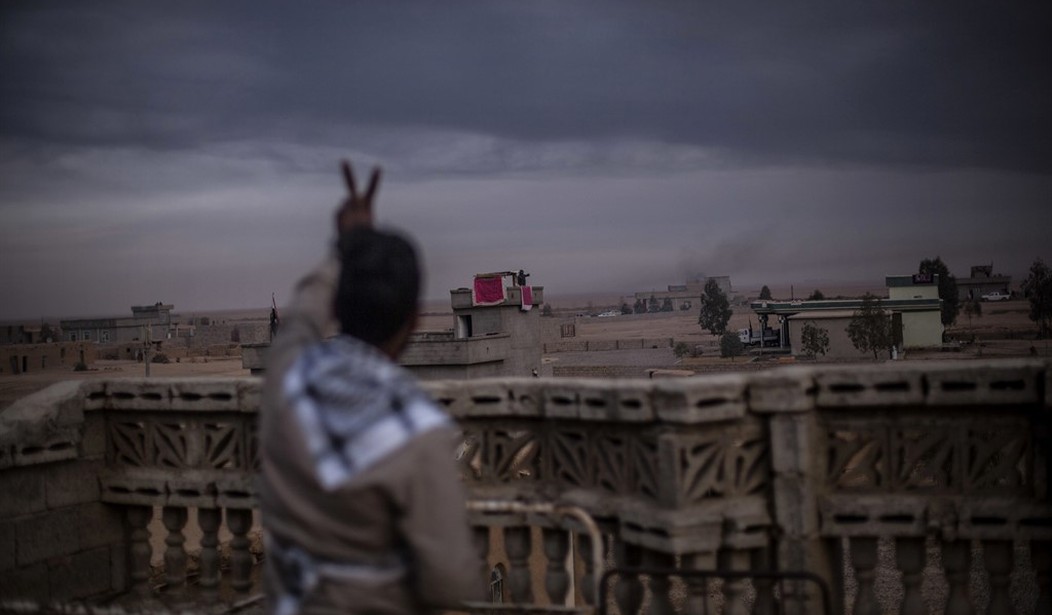In an April 2016 speech, then-candidate Trump called for a new rational in U.S. foreign policy, calling for an end to so-called “nation-building” strategies. The Obama administration actually calls this “capacity-building” or “security assistance programs.” Prevailing wisdom continues to say U.S. national security policies must target the ideology behind the threat through taxpayer-funded modernization projects for developing countries. But Cold War policies in Latin America show us the failure of these ideas. President-elect Trump, Michael Flynn and James Mattis would do well to reconsider the Pentagon’s role in these expensive and failing programs. After all, the military desperately needs that funding elsewhere.
What began as a very precise program to stop the spread of radical Islam in a few places in North Africa soon after September 11th has ballooned into a massive, ambiguous block of nation-building programs funded and executed murkily through the state and defense departments. But the Congressional Research Service concluded that “it remains unclear whether building the capacity of foreign security forces is an effective way to accomplish U.S. strategic objectives.”
Let’s be clear: it doesn’t work. This approach is simply a repackaging of previously abandoned strategies used in Latin America during the Cold War.
The Alliance for Progress began in 1961 as comprehensive development program aimed at reforming social and political systems throughout Latin America for the express purpose of thwarting the spread of communism. For 10 years, billions of dollars in civil assistance and military aid flowed into the government coffers of America’s southern neighbors, all in hopes that democracy, security and economic uplift would make communism less appealing. The program’s architects, as one scholar surmised, essentially attempted to “immunize Latin American societies against radicalism.” Sound familiar?
Unfortunately, the goal of a modern, communist-free Latin America proved elusive. Incomes stagnated. Literacy and infant mortality rates showed little improvement. Meanwhile, communism still found supporters. This last issue proved particularly irritating to U.S. officials still smarting from the “loss” of Cuba.
Recommended
In short order, stopping communism at all costs took precedence over wise security and democratic growth. Money and weapons flowed south to assist honest and dishonest leaders alike in their efforts to quell real and perceived threats of a communism. The funds incidentally helped entrench many pre-existing authoritarian governments. By the 1970s, military dictatorships controlled 13 countries in the region.
A wise man learns from his mistakes, but a wiser man learns from another man’s mistakes. Right? Well, the Trans-Sahara Counterterrorism Partnership and its “capacity-building” has an uncanny resemblance to the failed Alliance for Progress program.
This more recent Africa initiative is another whole-of-government project designed to rebuild developing nations through taxpayer-funded military training, community engagement (some of these include largely worthless religious tolerance programs), and vocational training. Like the Obama administration once claimed, ISIS just needs jobs.
All of this is intended to lessen the appeal of “violent extremism.” But what is “extremism”: the disenfranchised Islamic terrorism of Boko Haram, Saudi Wahhabism or the apocalyptic Islam of Iran? Could it possibly include Christian or atheist extremism? Who knows.
Moreover, poorly articulated objectives plague strategy, while unclear rules of engagement and a lack of financial oversight complicate missions. The military cannot operate in this environment. The president-elect, his incoming security advisers and the new Congress could consider:
— Define the threat. Dr. Zuhdi Jasser, founder and president of the American Islamic Forum for Democracy, says change the mantra of “violent extremism” to “violent Islamism.” This would allow officials to distinguish reformers and engage with them.
— Scale back the military’s role in security assistance programs and encourage greater reliance on U.N. peacekeeping forces. U.S. capital represents over a quarter of all peacekeeping funds, by far the most of any country at $2 billion.
— Dedicate funds to a quick-reaction force. Congress should return the focus of our military to rapid response and mobilization capabilities, rather than participation in expensive civil programs. The Senate Bill 1632 addressing Boko Haram, which just passed the House, provides a useful framework.
Capacity-building is nothing more than nation-building. Instead of pouring money into broad, undefined development programs and sacrificing military readiness, the Pentagon should fund a light, quick-reaction force and coordinate assistance efforts with U.N. peacekeeping operations and other multinational agencies on the ground. That is money better spent.

























Join the conversation as a VIP Member